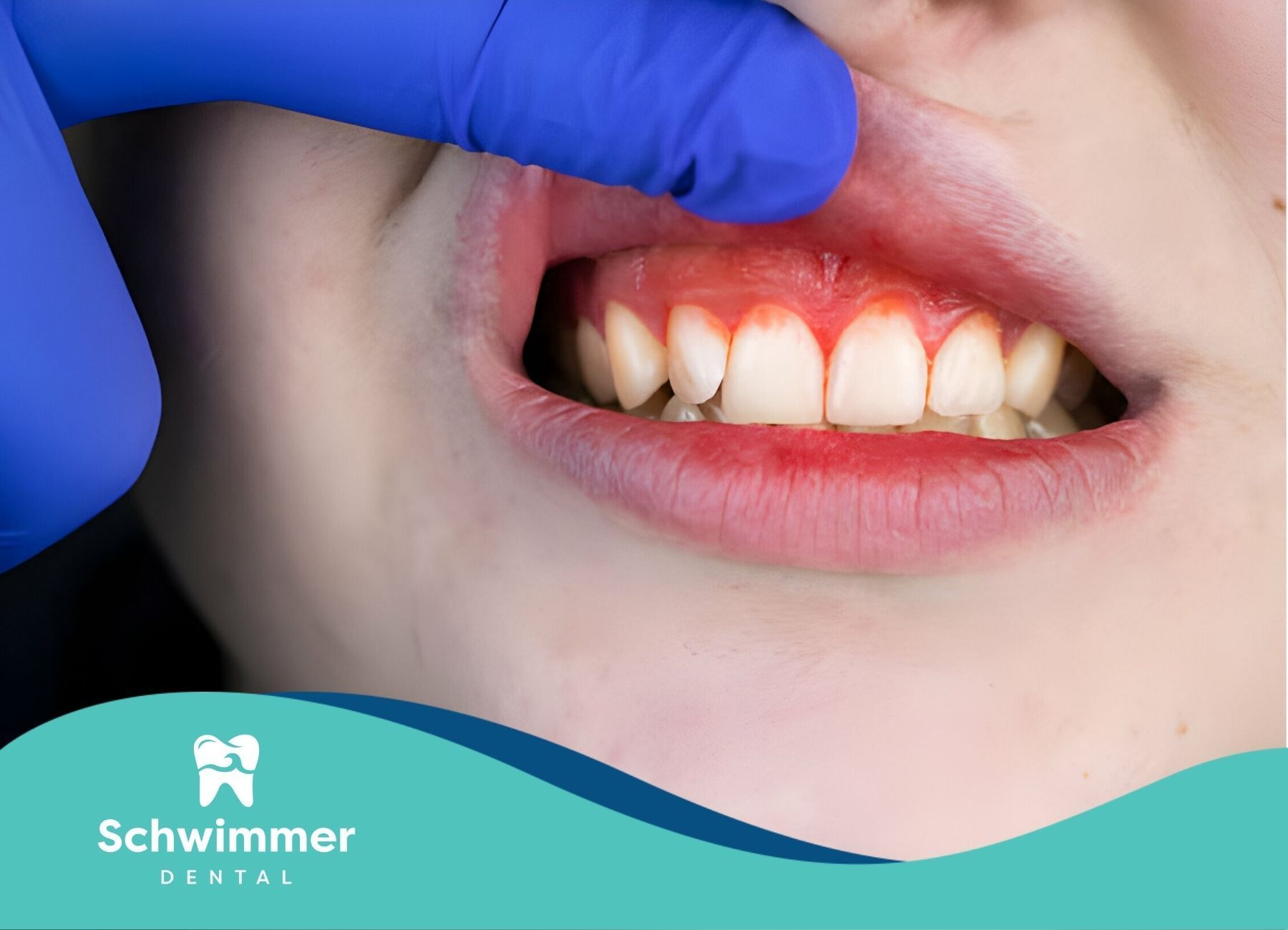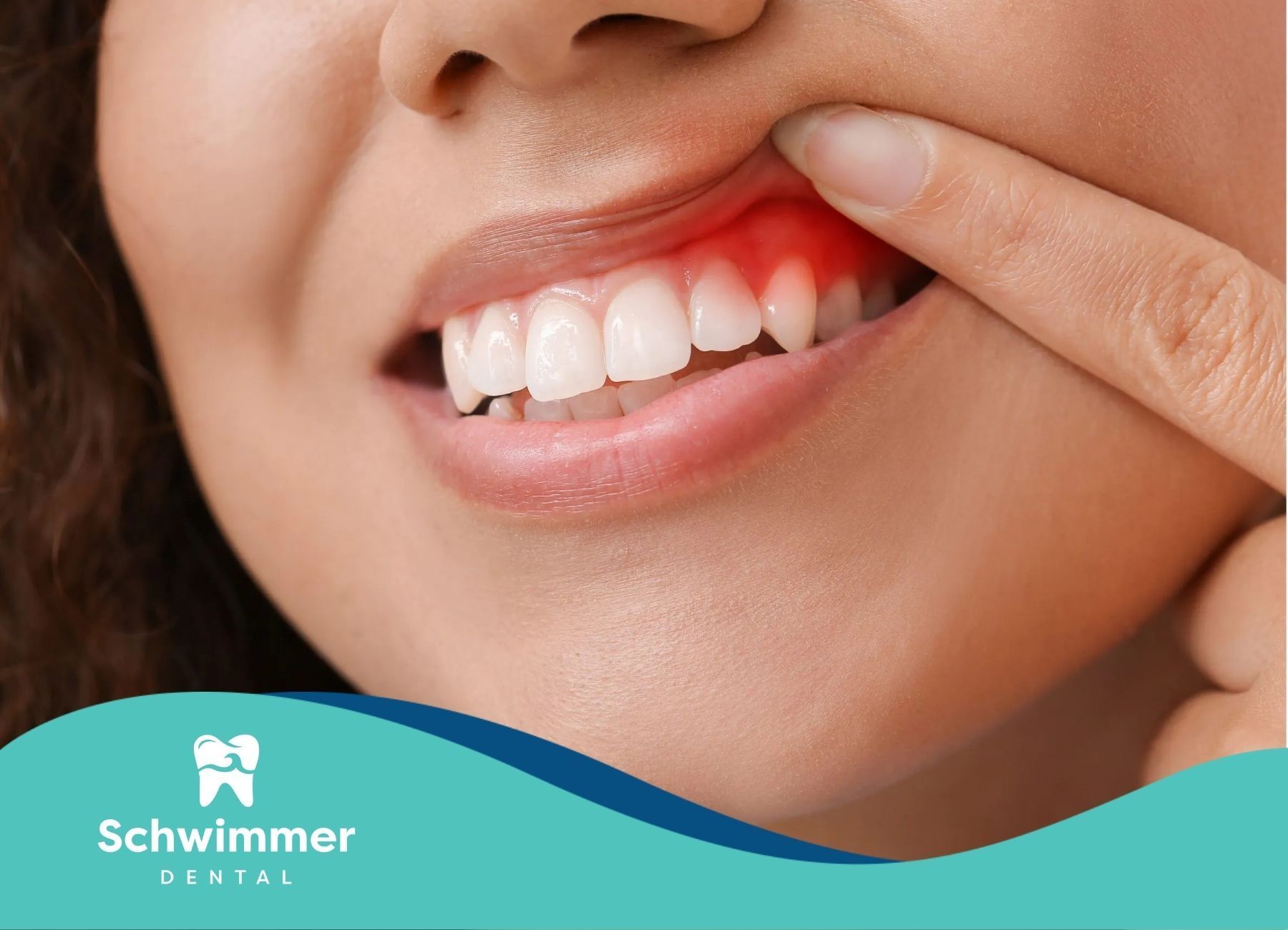What is Classed as a Dental Emergency? Quick Reference Guide
Dental emergencies can happen suddenly and lead to a lot of pain and worry. Issues like bad toothaches, a broken or knocked-out tooth, or heavy bleeding need immediate care. This guide will help you recognize dental emergencies. It will also explain why they happen and what steps to take to handle them well. Taking care of your dental health with quick emergency care is important for keeping your smile healthy.
Understanding Dental Emergencies
When you think about your health, it can be tough to tell when to wait and when to see a doctor right away. The same goes for dental health. A dental emergency means any mouth issue that needs quick care to stop bleeding, ease severe pain, or save a tooth. These problems often happen suddenly and can cause a lot of stress and hurt.
It's very important to spot a dental emergency and get help quickly. This can help lower damage, protect your oral health, and stop serious issues from happening. Waiting too long can sometimes lead to needing more treatment and longer-term problems.
Defining a Dental Emergency
Dental emergencies can happen in many ways. It can be tough to know if your situation is an emergency. If you have severe pain that makes it hard to go about your day, and painkillers don’t help, you should call your dentist right away.
Another warning sign is if you have uncontrolled bleeding from your gums or mouth, especially if it doesn’t stop for a long time. This could mean there is a serious issue that needs urgent care.
If you hurt your face or mouth and knock out a tooth, break your jaw, or have a lot of swelling, you need to go to the emergency room quickly. Acting fast is very important to manage dental emergencies well.
The Importance of Recognizing Dental Emergencies
Recognizing a dental emergency early is very important for several reasons. First, getting dental treatment quickly can reduce pain and discomfort. If you ignore a dental emergency, it can get worse. This may lead to more complex treatments later.
Second, attention right away can stop the spread of infection. A tooth infection can spread to other areas of the mouth, face, or into the bloodstream if not treated. This can be a serious risk to your overall health.
Also, acting fast can help save your natural teeth. If you have a knocked-out tooth or a big fracture, taking care of it quickly will improve the chances of keeping the tooth. It is always best to get urgent care for dental emergencies to keep your oral health in good shape.
Types of Dental Emergencies
Dental emergencies can happen in many ways. You might have a bad toothache or even a tooth that falls out. It is important to know about these common problems so you can tell when you need to see a dentist right away.
These emergencies can happen for different reasons. They can be due to injuries, infections, or dental issues you already have. Knowing the types of dental emergencies can help you take the right steps and get care quickly.
Broken or Cracked Teeth: Causes and Immediate Actions
A cracked tooth is a common dental problem. It can happen when you bite on hard things, get hurt in the face, or have old fillings. Depending on how bad the crack is and where it is, you might feel mild sensitivity or severe pain.
If you think you have a cracked tooth, it is very important to call an emergency dentist right away. While you wait, please do these things:
- Rinse your mouth with warm water to clean the area.
- Apply a cold compress on your cheek to help with swelling.
- Take pain relievers like ibuprofen as directed.
- Cover the cracked tooth with dental cement or sugar-free gum if you can't visit a dentist soon.
Keep in mind that a cracked tooth will not heal by itself. Getting timely dental care is key to getting the right diagnosis, stopping further damage, and finding out what treatment is best.
Severe Toothache and Its Implications
A strong toothache can be very painful. It often feels like a throbbing or persistent ache. You should never ignore it. Severe tooth pain can indicate serious issues like a dental abscess, which is an infection filled with pus, advanced dental decay, or a damaged tooth. If you ignore this pain, it can get worse. This might lead to losing the tooth or having the infection spread.
If you have severe tooth pain, you need to see your dentist right away. You can take over-the-counter pain relievers like ibuprofen for temporary relief. But, it is very important to treat the real problem.
Getting dental care on time can help stop further damage and reduce your discomfort.
Lost Fillings or Crowns: Temporary Solutions
Losing a dental crown or filling can be scary. It leaves the tooth open to more damage and sensitivity. It's important to see your dentist quickly, but there are some temporary fixes you can try.
If you lose a filling, you can use dental cement from the store. Make sure the area is clean and dry before you put it on. The cement will help protect the exposed spot and decrease sensitivity until your dental visit.
If your dental crown comes off, you can try to put it back on with dental adhesive or denture adhesive. Do not use superglue, as it can harm the crown and the tooth. Keep in mind that these fixes are only temporary. You should see a dentist or go to an urgent care center for proper care as soon as possible.
Dental abscess
A dental abscess is a serious infection that can happen at the root of a tooth or in the gums. It is known for causing a painful, pus-filled swelling. A dental abscess needs immediate emergency care. If it is not treated, it can cause life-threatening problems. That's why getting treatment on time is very important.
Here are some signs that show you might have a dental abscess:
- Persistent, throbbing tooth pain that goes to the jawbone, ear, or neck.
- Sensitivity to hot and cold.
- Swelling in your face or cheek.
- Tenderness or swelling in the lymph nodes under your jaw or in your neck.
- A sudden flow of foul-smelling and foul-tasting pus in your mouth may relieve pain.
Because dental abscesses are serious, you should contact a dentist or go for emergency care right away if you think you have one.
Immediate Steps to Take During a Dental Emergency
Experiencing a dental emergency can be scary. However, quick action is important. It helps reduce damage and leads to a better outcome. Stay calm and follow some key steps.
First, stop any bleeding. You can do this by putting gentle pressure on a clean cloth or gauze. If you lose a tooth, pick it up by the crown, which is the chewing part. Avoid touching the root or any tissue that might be attached if you can; try to put the tooth back into the socket and hold it there with gauze.
First Aid for Dental Trauma
Dental trauma is when your teeth, gums, or other mouth areas get hurt. This kind of issue often needs quick first aid to help with pain, stop bleeding, and keep things from getting worse. Knowing a few tips on dental first aid can really help in these cases.
If you have a loose tooth, gently try to move it back into position using light pressure. You can bite down softly to keep it steady. Do not push it hard into the socket. If a tooth gets knocked out completely, pick it up by the crown, never by the root. Rinse it lightly with water, but don't scrub or use soap if you can; try to put it back into the socket.
Whether your tooth is loose or has come out, you need to visit an emergency dentist right away. Time matters a lot, and getting quick dental care can increase the chances of saving your tooth.
When to Seek Immediate Dental Care
Not every dental problem is an emergency, but some really need quick help. If you have severe pain, especially if it keeps bothering you daily, you should see an emergency dentist right away.
Also, if you have uncontrolled bleeding, swelling, or signs of infection, you need to get care fast. These could be signs of something more serious that needs to be checked and treated quickly.
Delaying care for severe dental issues can lead to bigger problems later on. This might mean more complex treatments, complications, or even tooth loss. It’s always best to be safe and get help right away if you are unsure.
Where To Go for a Dental Emergency?
It can be hard to know where to go in a dental emergency. If you have severe pain, bleeding you can't control, or a serious situation, start at the emergency room. They are ready for critical cases and can help you right away.
Many dental offices offer emergency services during normal business hours. If your problem is urgent but not life-threatening, call your dentist quickly. They can often see you for an emergency visit or tell you the best way to handle the situation.
You could also go to an urgent care center. These places are getting more popular for treating non-life-threatening medical and dental emergencies outside usual working hours.
| Type of Dental Emergency | Where to Go |
|---|---|
| Life-Threatening Situation | Emergency Room |
| Severe Pain, Swelling, or Bleeding | Emergency Dentist or Urgent Care Center |
| Lost Filling or Crown | Dentist or Urgent Care Center |
| Broken or Chipped Tooth | Dentist or Urgent Care Center |
At Schwimmer Dental, we know that dental emergencies can happen when you least expect them. As the best dental provider clinic in New Jersey, our team is always ready to provide fast, compassionate care when you need it most. From severe toothaches to knocked-out teeth, we handle emergencies with expertise and efficiency. Don’t wait—contact us today and let us restore your smile and peace of mind!
Conclusion
In conclusion, it is really important to know what a dental emergency is. Being able to identify issues, like broken teeth or severe pain, helps you take quick action. Recognizing the signs and knowing when to get immediate care can protect your oral health.
Quick responses and temporary solutions can ease any discomfort until you see a dentist. Always put your dental well-being first and stay ready for emergencies to keep your smile safe. If you’re searching for emergency dental near me, don’t wait—schedule an appointment today and get the care you need to protect your smile!
Frequently Asked Questions
What should I do if I knock out a tooth?
If you can, try to put the tooth back into its socket. Hold it there with some gauze. If you can’t do that, keep it in a container of milk or your saliva. You should see an emergency dentist right away. Use a cold compress on the area to help with swelling. Getting dental care quickly can help save your tooth.
How can I tell if my dental issue is an emergency?
If you have serious pain, uncontrolled bleeding, a lost tooth, or signs of infection, you should get urgent care or emergency care fast. These are common dental emergencies that need quick help.
Are there temporary remedies for severe toothaches?
It is important to take care of the main problem with dental care. However, you can also try some quick fixes. Rinsing your mouth with warm salt water can be helpful. Applying a cold compress can ease the pain too. Taking ibuprofen is another option to help with dental pain.



